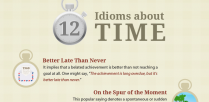As I’ve promised, we’re learning the grammar using more pictures and infographics!
Today our subject is concerning articles.
Indefinite and definite articles, such as “a”, “an” and “the”, describe and modify nouns.
Adults and advanced ESL students can run into many challenging situations where abstract and collective nouns make it difficult to decide whether to use “a”, “an” or “the.” In fact, article-related errors are one of the most frequent grammatical mistakes among ESL students representing 11% of all errors.
To decide which article to use or not use at all, consult the infographic below:
To download the high-resolution poster click here.
Specific or Non-Specific?
In many cases, “a”/”an” and “the” can be used interchangeably without drastically affecting the meaning. If the noun is general or non-specific, the indefinite article “a” or “an” can be used. If you are providing information about a specific noun, ‘the” is required.
Non-specific
“A/an” – indefinite article.
“a” for “one”:
A table and two chairs.
A cup of tea.
“a” for “one of”:
This is a wild orchid. (There are a lot of wild orchids; this particular wild orchid is one of them.)
“a” for jobs, current activity, nationality, religion (Here we also can say this is a part of “one of” rule.):
I am a student.
Bob is a composer.
Sheila is a dancer.
“an” + a, e, i, u, h (as a mute letter):
I am writing an article about this for half an hour already!
“a” when the listener does not know what we are talking about:
He took a bus and disappeared in few seconds. (Which bus? The bus going to which direction?)
“a” with the constructions: there is, I have got, this is, etc.
I’ve got a flower for you!
There was a wedding ring.
“a” in exclamatory sentences:
What a lovely day!
Such a cute cat!
“a” when we add a descriptive attribute:
That was a lovely day.
What will we do with a drunken sailor?
Specific
“The” – definite article.
“the” for the definite object/subject:
Where is the umbrella? (My umbrella)
“the” if the context gives the information about the object/subject:
Open the door, please. (There is only one door in the room, or the door I pointed at.)
“the” for the whole pattern of objects/subjects:
The bear eats the salmon.
The women are crazily in love with puppies and kittens.
“the” for the only one object:
The Sun doesn’t rotate around the Earth.
Paris is the capital of France.
“the” if we limited the object/subject:
Paul took the umbrella you were looking for.
“the” for the object/subject mentioned before
1) I live in a flat.
2) The flat is spacious and light.
“the” for the superlative degree, ordinal number, the words as only, very, wrong, opposite, right:
The highest mount is Mount Everest. (There can’t be two highest mounts.)
You are the best!
He was the only one who helped me.
Count and Non-Count
Non-countable nouns include words that can’t be pluralized or already represent more than one. Non-countable nouns include mice, money, foliage, pain, milk, water, etc. If you can’t add an “S”, the word uses “the.” For example:
The pain is unbearable.
When the master is away, the mice will play.
Zero Article
Non-count and generic plural words are often used without articles. Languages, academic courses, sports and many geographic terms, including the names countries, cities, states and streets are zero article words. Here are a few zero article examples:
Would you like wine with dinner?
The class is learning Swahili.
Time is money.
Vowels, Silent Letters, and Acronyms
Using “an” instead of “a” isn’t always straight forward. In fact, some vowels require an “a” phonetically. When a word like “University” begins with the name of its first letter, it can be paired with an “a”. The letter “H” also presents some trouble because it can be silent as in “an hour” or pronounced like “a historian”. Here are a few article examples:
Mr. Berg is a history teacher.
John is a university student.
Acronyms are tricky because letters can have vowel-like sounds like “em” or “ef.”
Mara is working on an MBA.
Jack is an FBI agent.
The Exceptions
Some words are naturally challenging because they don’t follow the rules. Fortunately, some of these exceptions have their own guidelines. While countries, cities and states don’t require articles, nationalities, rivers, forests, deserts and some general geographic regions do require articles. For example:
The banks of the Nile are fertile farmlands.
Tom’s family went to Kansas to see the Great Plains.








